I'm sitting here typing on a very fast satellite internet connection in a town with no phone service of any kind. The back of my hands itch with about 25 bedbug bites from sleeping four nights in a six hundred year old monastery, as I contemplate my imminent return to San Francisco. Last night I met a young Tibetan man who fled Tibet at the age of nine (with the help of an uncle,) walking over a 19,000 foot pass into Nepal, where he had to work as a manual laborer for a year before he had the money to head south to India to get an education. And in a few weeks I'm going to put my pampered white ass on a plane to go home to work and make an unreasonable amount of money, where no callouses will be earned and no sweat will be broken.
It's these confounding moments that make all the grief and hassle of a trip to India worthwhile.
I won't cry as often when I'm home, which is a little unfortunate, because I only cry when I'm happy. And I'm not allowed to say hi to kids in my neighborhood, not because of a court order, but because of the sterilizing paranoia that passes for parental concern at home. I play with kids here on a weekly basis more than I will in a year at home. But I'll also get to practice a different kind of love. Love at arm's length is no match for the challenge of up-close, long-term love, complete with annoying habits that seem designed to aggravate. (No, I don't have any offers at the moment.)
"Love, pure and simple; directed to none, denied to none." What does that look like when I've left exotic goose-bumpy India and I'm back in the oh-so-familiar haunts of home? I guess we'll see.
Much love,
Dave
The photos below are from the trek to Phuktal Monastery. I'll send stories later. There are nine photos:
The walk followed several rivers, which are brown at this time of year, and blue-green later in the fall. It rained on us in the morning.
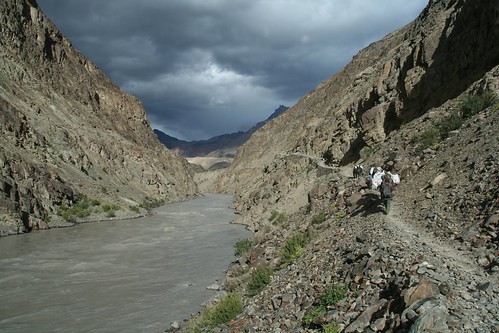
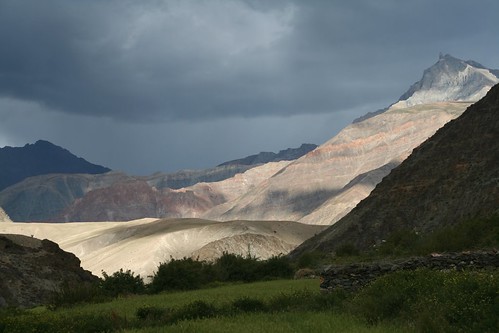
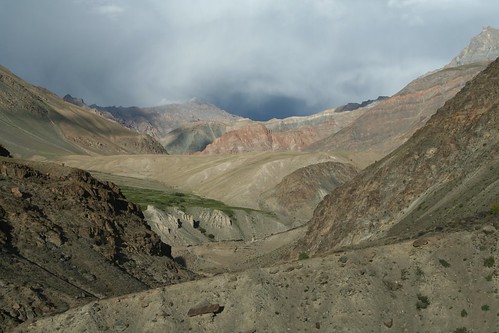
Buddhist stupas are important religious symbols, and are found in almost every village. These are in a village of only two houses.
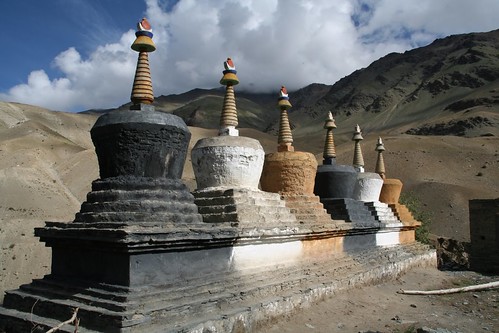
The central room of a Ladakhi house. Meals are cooked on the dung- and wood-fueled fire in the center, while family and visitors sit on carpets at the edge of the room.
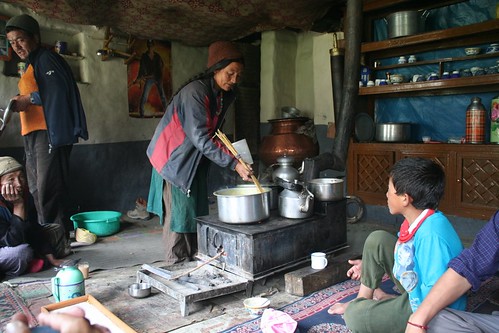
It's really rugged territory.
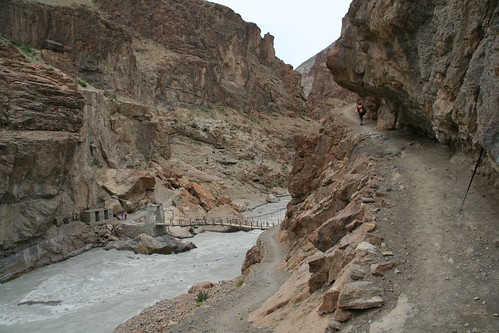
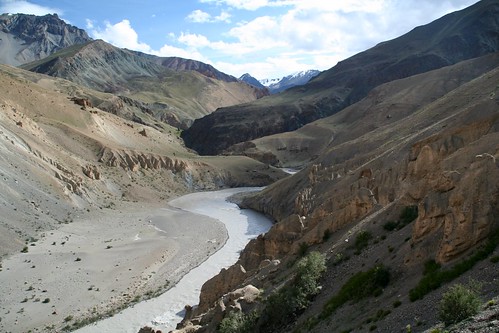
Phuktal Monastery.
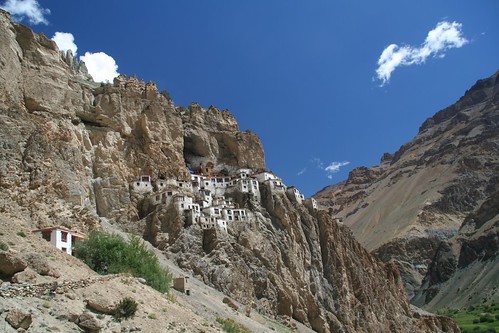
The monastery viewed from across the river, next to a small village of five houses. You can see the monastery to the center-left of the photo. The dark spot is a large cave that houses the primary meditation room. The village can be seen on the lower-right.
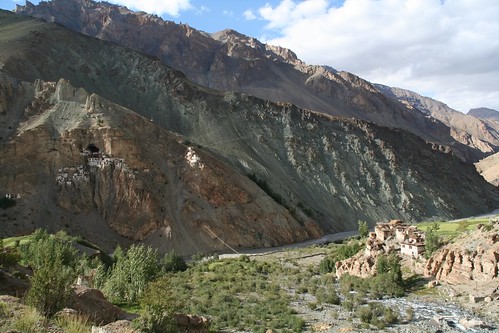
(The End)